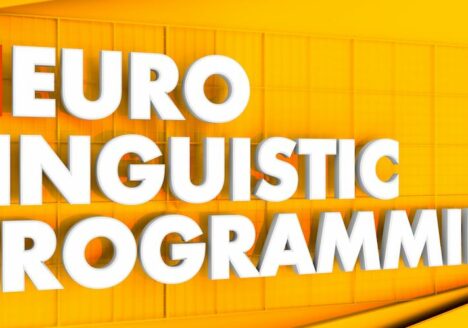The CORE Compass Framework is designed to guide individuals towards a balanced and fulfilling life by integrating four key dimensions: Curiosity and Cognitive Growth, Operational and Physical Vitality, Resilience and Emotional Equilibrium, and Essence and Spiritual Fulfillment. Viktor Frankl’s Logotherapy, which emphasizes the pursuit of meaning as the primary motivational force in human life, offers profound insights into achieving balance and fulfillment across these dimensions. By incorporating principles from Frankl’s seminal works and insights from modern positive psychology, we can enhance our understanding and application of Logotherapy within the CORE Compass Framework.
Essence and Spiritual Fulfillment
Search for Meaning and Purpose
Logotherapy teaches that the search for meaning is the primary motivational force in human beings (Frankl, 1959). This belief aligns with the CORE Compass Framework’s focus on Essence and Spiritual Fulfillment, which emphasizes living a life of purpose and deep personal significance.
Application:
- Personal Mission Statements: Craft statements that articulate core values, beliefs, and purposes, serving as a guide for decision-making (Frankl, 1988).
- Existential Reflection: Engage in reflective practices such as journaling or meditative contemplation to explore and affirm your values (Wong, 2012).
Key Insight from Man’s Search for Meaning:
Frankl emphasizes that even in suffering, life retains its meaning. This perspective nurtures resilience and encourages living authentically.
Transcendence and Self-Transcendence
Logotherapy encourages individuals to transcend their immediate concerns and connect with a higher purpose. This transcendence is achieved through acts of creativity, love, and altruism, fostering a profound sense of spiritual fulfillment (Frankl, 1959).
Application:
- Altruistic Activities: Participate in community service to foster a sense of connection and purpose. These activities transcend self-interest and contribute to the greater good (Batthyany & Russo-Netzer, 2014).
- Creative Expression: Explore creative pursuits such as writing, art, and music to address deeper existential questions and meanings (Lantz, 1998).
Key Insight from Man’s Search for Meaning:
Frankl highlights that meaning can be found through self-transcendence, which involves looking beyond oneself to serve others and embrace a larger purpose.
Curiosity and Cognitive Growth
Intellectual Engagement and Meaning
Logotherapy posits that meaning can be found through intellectual engagement and the pursuit of knowledge (Frankl, 1959). This aligns with the Curiosity and Cognitive Growth dimension, which emphasizes the importance of continuous learning.
Application:
- Engaging Curiosity: Follow curiosities and explore new fields of knowledge by reading widely or engaging in discussions on philosophical and existential topics (Frankl, 1988).
- Critical Thinking: Foster critical thinking to explore and question the meaning and purpose of various life aspects (Wong, 2012).
Key Insight from Man’s Search for Meaning:
Frankl suggests that intellectual engagement and the pursuit of knowledge can provide a profound sense of purpose and fulfillment.
Operational and Physical Vitality
Physical Health and Meaning
Logotherapy’s focus on meaning and purpose contributes to overall wellness (Frankl, 1988). A life guided by purpose positively influences physical health by reducing stress and promoting healthy behaviors.
Application:
- Purpose-Driven Health Practices: Adopt health and wellness practices that align with your sense of purpose, such as mindful eating, regular exercise, and adequate rest (Wong, 2012).
- Stress Management: Incorporate techniques like yoga and meditation to manage stress, viewing these practices as integral to a purposeful life (Batthyany & Russo-Netzer, 2014).
Key Insight from Man’s Search for Meaning:
Frankl’s philosophy suggests that a strong sense of purpose enhances physical health by fostering resilience and reducing stress.
Resilience and Emotional Equilibrium
Attitude Toward Suffering
Logotherapy posits that suffering, while inevitable, can be transformed into a source of meaning (Frankl, 1959). By adopting a purposeful attitude, individuals can develop emotional resilience and equilibrium.
Application:
- Cognitive Reframing: Shift perspective to view suffering as an opportunity for growth, consciously finding meaning in adversity (Frankl, 1988).
- Mindfulness and Acceptance: Practice mindfulness to cultivate a balanced approach to challenges, staying present and finding value in each moment (Batthyany & Russo-Netzer, 2014).
Key Insight from Man’s Search for Meaning:
Frankl’s experiences in concentration camps showed that maintaining a positive attitude toward unavoidable suffering fosters inner strength and peace.
Emotional Intelligence and Well-Being
Logotherapy emphasizes the importance of understanding oneself and one’s emotions in the context of one’s values and life’s meaning (Frankl, 1988). This self-understanding is crucial for emotional growth.
Application:
- Reflective Practices: Use journaling and introspection to deepen self-understanding and emotional intelligence (Wong, 2012).
- Therapeutic Techniques: Incorporate Logotherapy principles into therapeutic practices to explore and affirm life’s purpose (Batthyany & Russo-Netzer, 2014).
Key Insight from Man’s Search for Meaning:
Frankl asserts that self-understanding and the search for meaning are intertwined, empowering individuals to live intentional and fulfilling lives.
Integration with Modern Insights
Logotherapy and Positive Psychology
Logotherapy aligns with positive psychology’s focus on meaning, purpose, and strengths (Batthyany & Russo-Netzer, 2014). By integrating these perspectives, individuals can enhance emotional well-being and resilience.
Application:
- Strengths-Based Approach: Leverage personal strengths to achieve meaningful goals (Wong, 2012).
- Gratitude Practices: Reflect on life’s inherent value through gratitude journaling, deepening one’s appreciation for purpose and meaning (Batthyany & Russo-Netzer, 2014).
Key Insight from Positive Psychology:
Research supports Frankl’s assertion that meaning and purpose are fundamental to psychological well-being.
Practical Applications in Modern Life
- Personal Mission Statements: Craft statements articulating core values to guide decisions.
- Continuous Learning: Engage in intellectual pursuits to foster curiosity and growth.
- Purpose-Driven Health Practices: Adopt practices that support physical and mental well-being.
- Resilience Building: Use Logotherapy to find meaning in challenges and grow through adversity.
- Community Engagement: Participate in altruistic activities to transcend personal concerns.
Conclusion
Viktor Frankl’s Logotherapy offers profound insights into the search for meaning and its impact on the spiritual, physical, and cognitive dimensions of the self. By integrating these principles into the CORE Compass Framework, individuals can achieve greater fulfillment, resilience, and overall well-being. The pursuit of meaning guides us toward a deeper understanding of ourselves and our place in the world, fostering a life of purpose and authenticity.
References
Frankl, V. E. (1959). Man’s Search for Meaning. Beacon Press.
Frankl, V. E. (1988). The Will to Meaning: Foundations and Applications of Logotherapy. Meridian.
Batthyany, A., & Russo-Netzer, P. (Eds.). (2014). Meaning in Positive and Existential Psychology. Springer.
Wong, P. T. P. (2012). The Human Quest for Meaning: Theories, Research, and Applications. Routledge.
Lantz, J. (1998). Logotherapy in Action. Jason Aronson.




